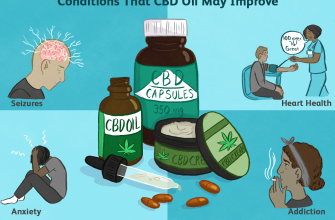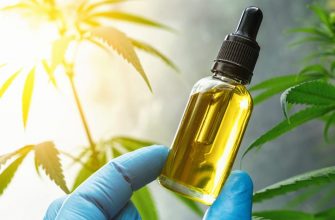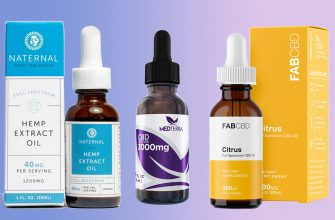- Possible causes of the formation of infectious diseases
- Are infectious diseases transient or complex?
- Types of infectious diseases
- The evil bacteria MRSA
- Prion diseases
- Viral hepatitis – hepatitis B virus, HBV
- CBD and treatment for viral hepatitis
- Lyme disease
- CBD and Lyme disease treatments
- Tuberculosis Tuberculosis TB
- Summary – CBD and Infectious Disease Treatment
Infectious diseases are diseases that originate from foreign microorganisms (pathogens) that cause damage to various body systems. These infections can be of different types, be they bacteria, fungi, virus-like (viroid), protist (between fungi and bacteria), viral, and others. A person with an infectious disease – and by definition almost anyone can get it – may suffer from a malfunction of vital systems in their body. Infections cause inflammation in the body (the body’s response to infection) and, if not properly and promptly treated, also cause wounds, necrosis, destruction of the damaged organ, or even death.

All phytocannabinoids in the cannabis plant have activities that kill or prevent the development of various microorganisms (other than viruses). – This feature explains CBD’s ability to treat infectious diseases. CBD has recently been found to have very strong antibiotic properties even against bacteria that are resistant to all types of antibiotics.
Possible causes of the formation of infectious diseases
microbes: (Bacteria) A single-celled organism that can cause a wide range of diseases, ranging from minor diseases such as streptococcal laryngitis or urinary tract infections to serious diseases such as tuberculosis or meningitis. CBD is a natural antibacterial agent.
Viruses: (Viruses) The virus is smaller than a bacterium, has no independent viability and lives only in other cells. It causes many diseases, some of which are very common, such as mild colds and flu, and some more rare, such as AIDS. A complication of viral disease is the weakening of the walls of the organs, which exposes them to attack by bacteria. CBD can strengthen cell walls and thus protect against viruses.
mushrooms: It mainly causes skin conditions such as ringworm or nail fungus. However, fungi can also cause serious systemic diseases of the lungs, nervous system, or genitals. There are strains of cannabis that contain terpene caryophyllene oxide. It is a fungicide.
Parasites: Diseases caused by parasites are less common in the Western world. Causes of diseases such as: malaria or river blindness. as already mentioned, Some phytocannabinoids are parasitic.
Are infectious diseases transient or complex?
Infections usually go away easily without special treatment, and sometimes even the patient does not suspect that he has had an infectious disease. Sometimes the infection can have various complications. Infection can cause permanent damage to the organ in which the infection occurs, such as pyelonephritis, or damage to other organs from a primary infection, such as rheumatic fever. There are infections that can also cause cancer, infections such as pneumonia, meningitis, and AIDS that can be life-threatening.
Types of infectious diseases
Infectious diseases that were common in the past: Cough, ascites (diphtheria), endemic typhus, syphilis (syphilis), typhoid fever, measles, mumps, polio, and tuberculosis.
Infectious diseases registered in recent years: Campylobacter, Leishmania, Listeria and Chlamydia.
Influenza depending on the season
The Ministry of Health’s flu vaccine recommendations are ineffective and not protected against the virus strain that hit that winter season. CBD may prevent the development of influenza bacteria in the first place, regardless of the specific vaccine.
The evil bacteria MRSA
In 2007, researchers from Italy and the UK discovered that in addition to THC, the cannabis plant has at least 4 other antibacterial molecules that are capable of killing 6 different types of aggressive bacteria that are resistant to common antibiotics. One of the important discoveries is that Both CBD and THC have strong activity against non-reactive and antibiotic-resistant bacteria – methicillin-resistant Staphylococcus aureus – MRSA.
Learn more about CBD and the strong bacterium MRSA treatment
Prion diseases
The antibiotic properties of CBD make it especially effective in stopping the development of fertility-related diseases (prion diseases) such as mad cow disease and Creutzfeldt-Jakob disease. Fertility is a malformed protein that, once it enters the brain tissue, rapidly multiplies and replicates, contracting the brain tissue, which becomes “spongy”. The damage is irreversible and most often nervous diseases and degeneration of the general nervous system develop.
Cannabidiol is now known to prevent the buildup of fertility and protect cells in the nervous system from toxicity. These discoveries are extremely important because fertilizers are proteins that are very difficult to get rid of, and there are currently no drugs or life-saving drugs in the world of medicine.
Strong bacteria like MRSA or fertility diseases affect over 100,000 people in the United States alone each year, of which die.
Viral hepatitis – hepatitis B virus, HBV
Jaundice is the generic name for a number of diseases that cause hepatitis, which is expressed, among other things, in the yellowish discoloration of the skin, face and eyeball. This color results from the accumulation of excess bilirubin due to liver dysfunction. The virus first causes an acute illness that lasts for several weeks, followed by full recovery or the development of chronic hepatitis B. Chronic illness can cause severe liver damage and various complications such as cirrhosis of the liver and liver cancer.
Jaundice can be caused by various reasons:
- During labor, neonatal jaundice
- As a result of alcohol abuse
- As a result of the accumulation of toxins (as a side effect of taking various medications)
- Obstructive jaundice as a result of benign or malignant formation of the bile ducts or liver.
- Infectious jaundice due to bacterial infection
- Viral hepatitis caused by a viral infection
CBD and treatment for viral hepatitis
Cannabidiol has properties that protect the liver from serious dysfunction. A study in laboratory mice treated with hepatitis with CBD showed a reduction in liver damage. The anti-inflammatory effects of CBD are essential in treating viral hepatitis along with its antioxidant properties.
Lyme disease
Lyme disease (borreliosis; Lyme disease) is a disease that is most commonly caused by the bacteria Borrelia burgdorferi, as well as the bacteria Borrelia afzelii and Borrelia garinii (mainly in Europe). The early stage of the disease is characterized by headache, fever, fatigue, depression, and a skin rash called migrant erythema.
If the patient is not treated, various body systems such as the nervous system, joints, and heart will usually be damaged. In most cases, if the patient is diagnosed in the early stages of the disease and receives antibiotic treatment, they will recover.
Late diagnosis of the disease or inappropriate treatment can cause acute symptoms of the disease that are difficult to treat.
CBD and Lyme disease treatments
There are many anecdotal reports of Lyme patients being treated with CBD. Patients report that the feeling of fatigue decreased dramatically during the day, energy and positivity also caused an increase in mental state. The nausea also began to subside, and the infections causing pain in the joints, back and chest were significantly reduced. Other patients report that the first effect was to reduce the number of pain relievers becauseCBD He treated problems with sleep and pain.
Research has shown that inflammatory T cells bind to Lyme disease molecules, which triggers the activation of T cells that produce inflammatory molecules. Due to the suppression of the action of the enzyme FAAH, which breaks down endocannabinoids, more active endocannabinoids remain, which bind the CB1 and CB2 receptors. Thus, cannabidiol inhibits T cells and prevents them from binding to Lyme disease cells.
Tuberculosis Tuberculosis TB
A contagious infection caused by Mycobacterium bacteria, usually bacteria from the genus Mycobacterium tuberculosis. The typical lesion of TB is health, but it can also affect other parts of the body. The disease is airborne when infection is transmitted from person to person through the cough of a sick person.
The disease is known as “white death”. Tuberculosis is one of the most common causes of death at any age worldwide. In terms of the number of deaths in the world (from infectious diseases) as a result of this disease, it is in second place (after AIDS) in terms of the number of deaths from infections. About 95% of the world’s cases diagnosed with tuberculosis infection and resulting in death were in third world countries. About a third of the world’s population is infected with tuberculosis, and about 1% of the population becomes infected every year. In 2016, more than 10 million cases of active TB were reported worldwide, resulting in 1.3 million deaths. In one hundred of these cases, it is tuberculosis that is resistant to all types of antibiotics.
A 1955 study (!!!) conducted at the National Institute of Nutrition in Czechoslovakia showed that hemp seed oil is the only effective treatment for tuberculosis. The protein adestine, found in hemp seeds, is considered to be the closest compound to globulin. Globulin is one of three groups of proteins that make up plasma (along with albumin and fibrinogen). Some globulins are produced in the liver, while others in the immune system. The protein esteine is easily absorbed and is considered the best protein for the treatment of tuberculosis.
Summary – CBD and Infectious Disease Treatment
Phytocannabinoids have been known in science for many years as extremely powerful antibacterial compounds. Cannabidiol, in particular, proves to have the ability to inhibit or kill bacteria, parasites, and even strains of antibiotic-resistant aggressive bacteria.
Many consumers from around the world who consume CBD oil report improved overall health. In the case of influenza or any other sudden infectious disease, CBD treatment may not be a substitute for traditional treatment, but it can certainly be beneficial and support such treatment. Pharmaceutical companies are already reporting dozens of percent reductions in conventional drug use among patients treated for CBD.





